South America at war: Why everyone hates Brazil (including some Brazilians)
All four of Brazil's South American rivals remaining in the World Cup have their own special reasons for wanting to beat the hosts. Martin Mazur opens the veins of Latin America...
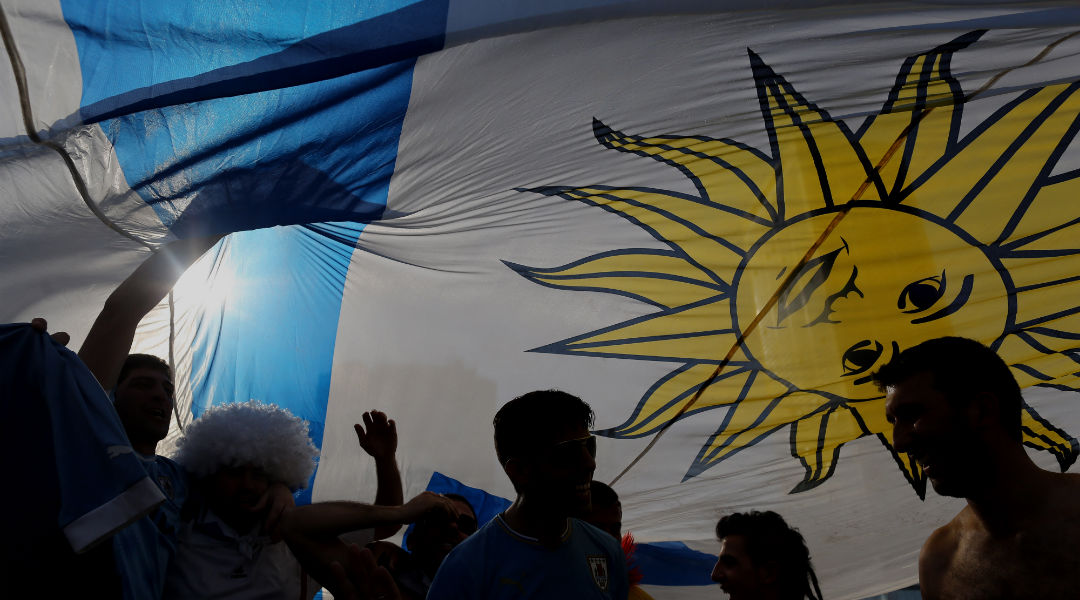
“America for the Americans” was a phrase used by US president James Monroe against European intervention in the 19th century. The so-called Monroe Doctrine has nothing to do with football, but Latin America has maintained it throughout World Cup history: if the tournament is played on American soil, then the trophy must not leave American soil.
So far, it has worked. Hosts Uruguay beat Argentina in 1930, Brazil lost to Uruguay at home in 1950 and won at Chile 1962, Mexico 1970 and USA 1994, while Argentina won at home in 1978 and then in Mexico 1986.
Will it be the same in 2014? The doctrine appears strong, with Brazil, Argentina, Uruguay, Chile and Colombia through to the knockout stage (along with Concacaf neighbours Costa Rica, Mexico and the United States) and only Ecuador out of the tournament.
While Uruguayan writer Eduardo Galeano’s famous 1971 book Open Veins of Latin America described the similarities and suffering of the people from a global perspective, South Americans are not just one people and can’t be explained as a whole, even when it comes to football.
They have their own rivalries: not just sporting ones, but others with deep political and cultural connotations. And there is a natural division, marked by language: Spanish-speaking countries against Portuguese-speaking countries. Or, putting it simpler, everybody against Brazil.
With their five World Cups and the constant reminder that they are pentacampeao (five-time champions), it’s tempting to see Brazil as the empire and the rest of the Conmebol countries, even Argentina, as victims trying to gain their independence from football’s biggest superpower. But rivalry is far from being just on national team level: the continental club competitions Copa Libertadores and Copa Sudamericana have provided constant fuel for the fires burning between the cultures.
On the surface, Brazil is the Shangri-La of jogo bonito, but for South American clubs (and fans), travelling to Brazil is a nightmare at all levels. Just as a reminder, at half-time in the 2012 Copa Sudamericana final second-leg at Sao Paulo, Argentinian side Tigre decided not to return to the pitch after police threatened some of their players and pointed a gun at one of them. Six months earlier, Boca Juniors had also denounced savage police treatment and a fan ambush at the Libertadores final. For more than five decades, fireworks have been used to distract players from sleeping the night before the games. It’s all this that sets up defeating the Brazilians at home as the perfect crime. But who is most likely to inflict the final blow - and who would enjoy it most?
Get FourFourTwo Newsletter
The best features, fun and footballing quizzes, straight to your inbox every week.
Argentina
Asked before the tournament, Argentinians didn't want to win the World Cup final against the old enemies England, or the German team who've knocked them out at the quarter-finals of the last two tournaments. No, 80% of respondents wanted to meet and beat Brazil on July 14; the other 20% expressed a preference that the hosts be eliminated at the group stage.
Is this pure hate? Let’s stay out of sociology and focus on the language of the stadium. If five of the most popular chants that Argentinians are currently singing in Brazil describe the suffering of the verdeamarelha, and one of them literally addresses Brazilians as “sons of bitches”, then you could say that it’s not just about Messi and Neymar or Maradona and Pelé, is it?
The jibes know no bounds. It’s Machiavellian. One Argentinian flag flying in Rio de Janeiro read “Pelé debutó con un pibe”. It’s a famous Maradona quote, that Pelé had his first sexual intercourse with a boy [Which, of course, Pelé denies - Legal Ed.]. Even having an Argentinian Pope is an excuse to mock the neighbours.
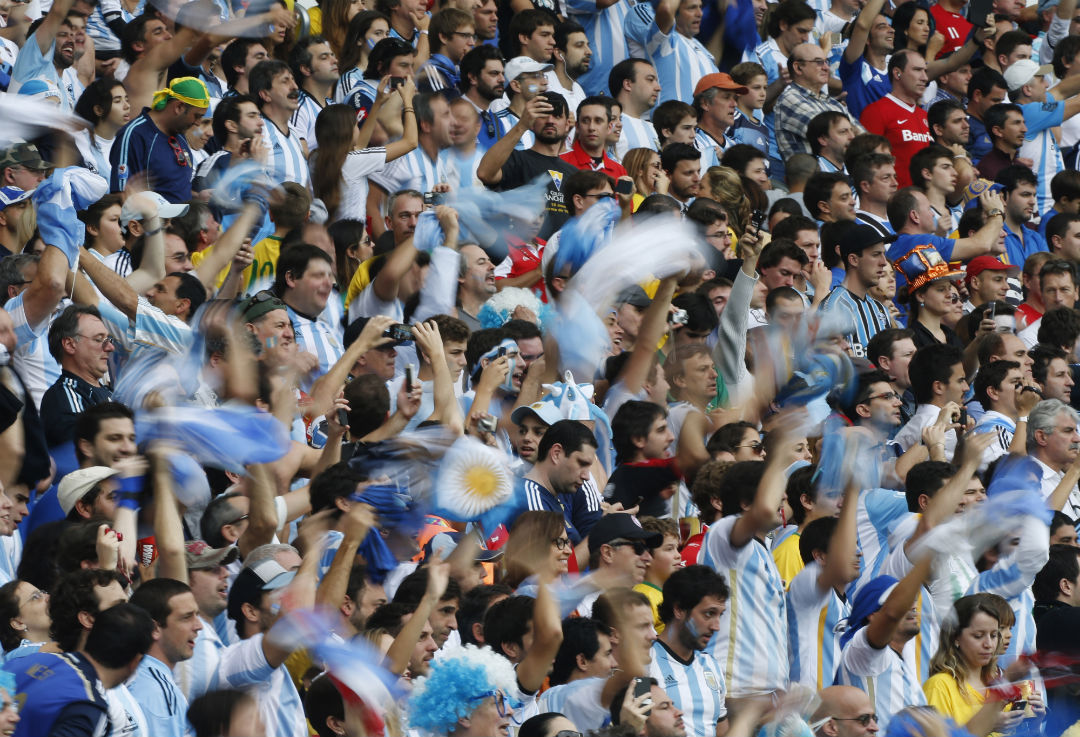
Argentina’s squad celebrated by singing one of these popular ditties: “Brazil, tell me what does it feel, to have your football daddy at home. Although the years pass, you won’t forget it. Maradona dribbled you, Cani [Claudio Caniggia] vaccinated you, and you've been crying ever since Italy [1990]. Now you’ll see Messi, he will bring the Cup to us. Maradona is greater than Pelé”.
The 'football daddy' issue is because Argentina have the better head-to-head record against Brazil: 36 wins to 35. But in the last decade or so Brazil have won two Copa Americas, and one Confederations Cup, defeating Argentina in the final: 2004, 2005 and 2007.
The funny thing is that in Belo Horizonte, where Argentina have their HQ, many Brazilians showed up wearing Argentina and Messi tops, claiming that they will be cheering for the Albiceleste. “I can’t believe this”, an Argentinian fan told me as he stared at them in disbelief. “I wouldn’t wear a yellow jersey for anything, not even if I’d lost a bet, much less at home and while organising a World Cup”, he added.
Still, it might not take long for Brazilian openmindedness to revert to hostility, considering all the provocations they’ve been suffering. There have been reported incidents with Argentinians in different cities, not just against Brazilians but against Chileans and Uruguayans. And a battle of drunken fans in Savassi, throwing bottles at each other, has already become a YouTube hit.
At Mineirao in Belo Horizonte, at half-time in Argentina-Iran, three Brazilians were deriding some Argentinians. They didn’t know they were messing with ultras: one of them emptied his beer glass over the Brazilian’s head and then threw a punch that broke his nose. The bust-up ended with arrests and promises of revenge.
And that was Argentina-Iran, in the group stage. What will happen if Argentina makes the final against Brazil? Better not to imagine the implications of a defeat... or of a victory.
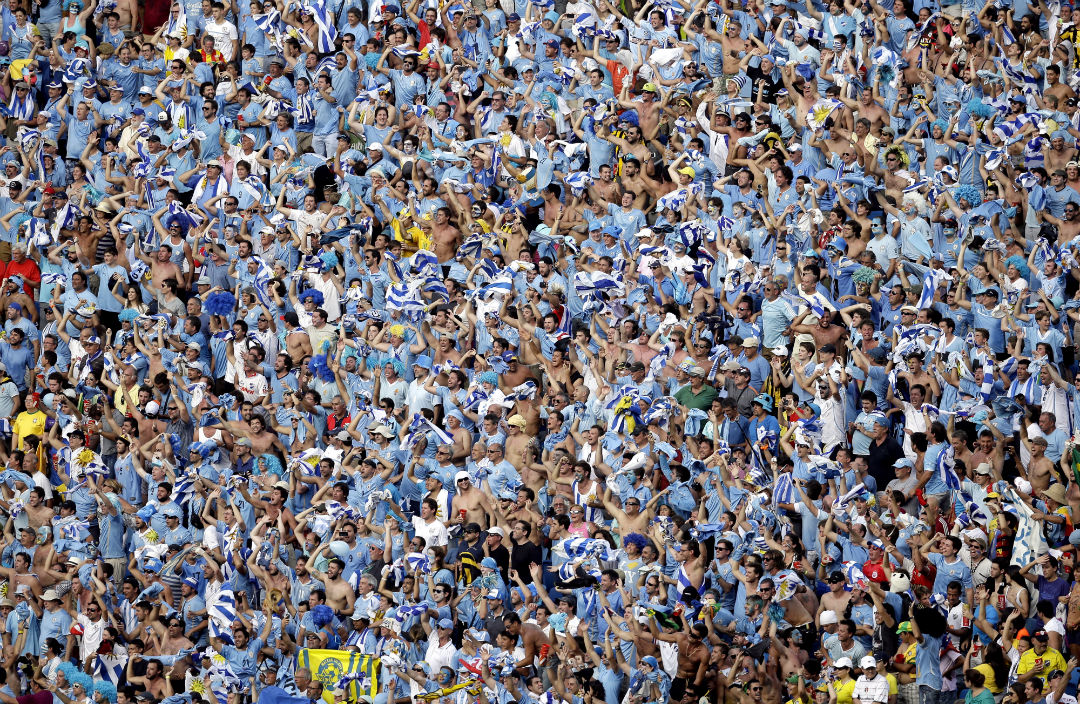
Uruguay
Since the moment in 2007 that Brazil was awarded this World Cup – effectively by default, when their only rivals Colombia dropped out – fans in every other South American country have dreamt of pulling off another Maracanazo. Arising from Uruguay's unlikely 1950 victory at Rio de Janeiro’s football temple, Maracanazo is a noun that has come tomean winning against all odds, resisting, surviving, and ultimately defeating those who dared to write you off.
Its meaning transcends football, entering the realm of politics. In a speech in front of president Luis Mujica, Uruguay’s Defence Minister Luis Rosadilla described the 1811 battle of Las Piedras as “an early Maracanazo on a warlike level”. It was another war, against the Brazilians in 1825-1828, that prompted the existence of the State of Uruguay. But the greatest victory is not taught at schools, and it involves Maracanazo heroes Obdulio Varela, Schiaffino and Ghiggia.
The Ghost of 1950 has been invoked heavily in the run-up to 2014. Uruguay's kit manufacturers Puma ran an advert featuring a Celeste-clad spook bothering the inhabitants of Rio on his inevitable way to the Maracana.
If Uruguay's unique garra charrua prevails and performs another football miracle, the three million inhabitants of this World Cup's smallest nation will have reason to feel proud for another 100 years. But the ghost of Maracanazo can also lead to wrong assumptions and tricky conspiracy theories.
From the moment Luis Suárez bit Giorgio Chiellini, Uruguayans suggested that any suspension would be because the hosts fear the revival of their greatest football drama. In fact, they had already started suggesting this after the World Cup draw, when Uruguay were lumped with England and Italy in the Group of Death (in which the supposedly cannon-fodder Costa Ricans ended up killing everyone).
Uruguay's persecution complex has only worsened with the suspicious arrival of ants in Fernando Muslera’s bed, and the Brazilian government's confiscation from the Celeste camp of 40 kilos of dulce de leche apparently imported without the necessary sanitary documentation.
Such incidents have increased their desire to pull off another Maracanazo – but have also given them plenty of fallback excuses should they lose to Brazil in the quarter-final, or to Colombia in the second round. After all, it's not just the English who like to blame someone else when things go wrong.
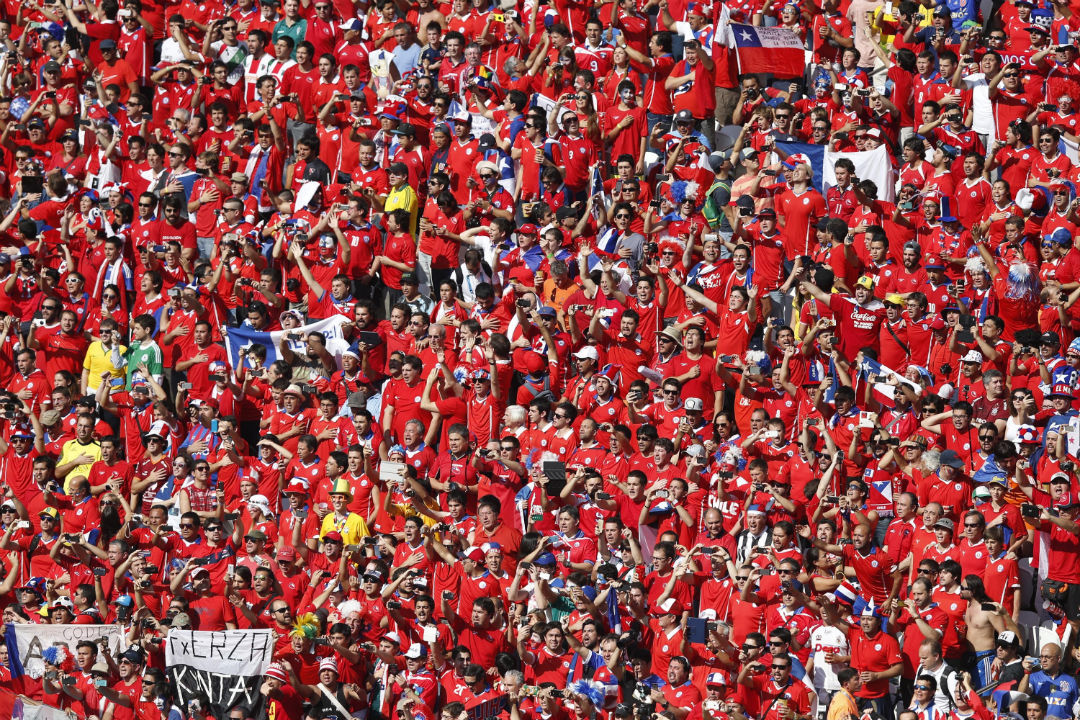
Chile
If coming up against Brazil in a World Cup is a sign of bad luck, playing them three times in succession at the first knockout stage is a catastrophe. Chile lost to Brazil at the second-round stage in 1998 and 2010; the only other time they escaped the first stage, when hosting in 1962, they reached the semi-finals… and lost to Brazil.
Even that wasn't the first time that Brazil had killed Chilean dreams, or even the second: the South American tournament of 1945 and the 1952 Panamerican games also witnessed Chile suffering. But Chileans retain their spirit and are confident as they prepare to face their eternal enemies.
With Jorge Sampaoli they have a very serious side, with a unique style of pressing that can become a problem even for the superpowers. “Chile is the kind of team that you never want to face," said Argentina coach Alejandro Sabella. "And it’s not just me that is saying this: Spain and Germany's managers agree.”
Chile is the only remaining South American participant not to share a border with Brazil, and the hosts wouldn't regard La Roja as among their main rivals, but there is history there. In that 1962 World Cup, the brutal marking the hosts performed on Garrincha ended with the winger sent off and his head with stitches, after being hit with a bottle.
In 1989, Chile were shamed again: losing 1-0 at the Maracana, goalkeeper Roberto Rojas faked injury by cutting himself with a hidden razor blade and claimed it was the result of a firecracker, leading to a walk-off by the visitors. FIFA saw through the ruse, Rojas was banned for life and Chile were suspended from the 1994 tournament. Their only two appearances since have been ended by Brazil, and each side will claim vindication for victory this time out.
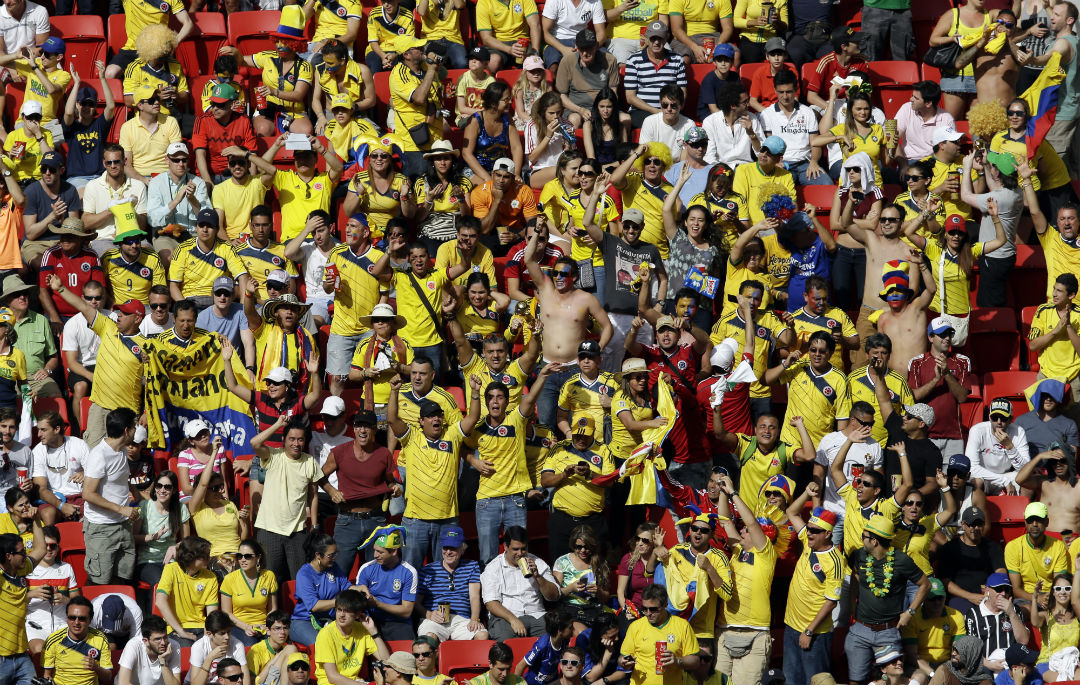
Colombia
The thousands of Colombians who crossed the country's south-eastern border with Brazil, headed to Belo Horizonte, Brasilia and Cuiaba for their country's group games, were travelling a well-worn path with a tricky history.
It was this same border where, in 1991, a tense diplomatic episode ended with the death of seven innocent Colombian gold-diggers, reportedly at the hands of the Brazilian military, who had been suffering terrorist attacks by guerillas from FARC - the Revolutionary Armed Forces of Colombia.
Not unusually, Colombians have huge confidence in their team – but they also have belief that the hosts are conspiring against them. Colombia have already handed a complaint to FIFA.
“We asked for changes in the security that was assigned to us, because we’ve been experiencing repeated incidents and sabotages,” said the team’s press official Mauricio Correa. The complaint involved Sao Paulo’s local police, “because they are forcing us to travel at 20 km/h, delaying us on purpose. The kit bus was blocked and arrived late to the airport, which prompted a direct confrontation with the security officers.”
It may seem petty compared to the deaths of the innocent, but the mutual suspicion, frequently breaking out into violence, is typical. If Latin America's open veins bleed again, perhaps it's best that it's only figurative, football-based suffering.
